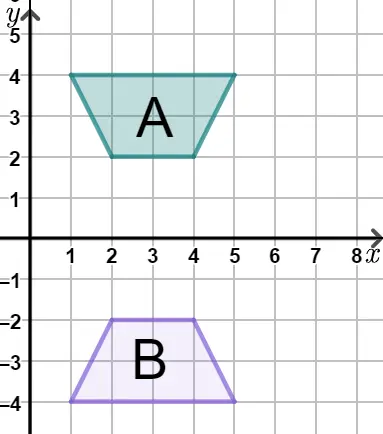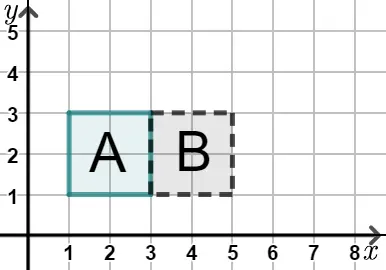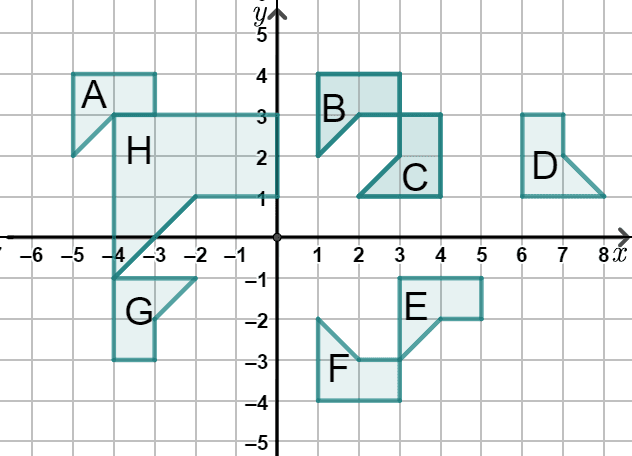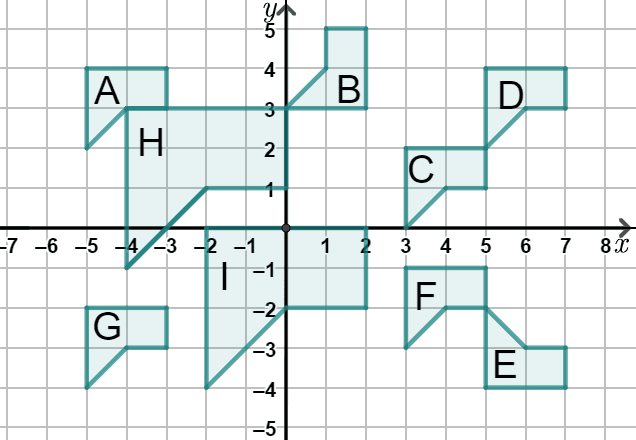Myths about teaching can hold you back


- Year 10•
- Higher
Advanced problem solving with further transformations
I can use my enhanced knowledge of transformations to solve problems.


- Year 10•
- Higher
Advanced problem solving with further transformations
I can use my enhanced knowledge of transformations to solve problems.
These resources will be removed by end of Summer Term 2025.
Switch to our new teaching resources now - designed by teachers and leading subject experts, and tested in classrooms.
These resources were created for remote use during the pandemic and are not designed for classroom teaching.
Lesson details
Key learning points
- By understanding what changes and what is invariant, you can determine whether a transformation has occurred.
- Sometimes you might need to persevere in order to find the right transformation(s).
- You may be able to check your deductions by carrying out the transformation.
Keywords
Object - The object is the starting figure, before a transformation has been applied.
Image - The image is the resulting figure, after a transformation has been applied.
Invariant - A property of a shape is invariant if that property has not changed after the shape is transformed.
Invariant point - A point on a shape is invariant if that point has not changed location after the shape is transformed.
Common misconception
There is only one way to describe what has happened to an object to create its image.
There may be multiple transformations or combinations of transformations that map the object to the image.
To help you plan your year 10 maths lesson on: Advanced problem solving with further transformations, download all teaching resources for free and adapt to suit your pupils' needs...
To help you plan your year 10 maths lesson on: Advanced problem solving with further transformations, download all teaching resources for free and adapt to suit your pupils' needs.
The starter quiz will activate and check your pupils' prior knowledge, with versions available both with and without answers in PDF format.
We use learning cycles to break down learning into key concepts or ideas linked to the learning outcome. Each learning cycle features explanations with checks for understanding and practice tasks with feedback. All of this is found in our slide decks, ready for you to download and edit. The practice tasks are also available as printable worksheets and some lessons have additional materials with extra material you might need for teaching the lesson.
The assessment exit quiz will test your pupils' understanding of the key learning points.
Our video is a tool for planning, showing how other teachers might teach the lesson, offering helpful tips, modelled explanations and inspiration for your own delivery in the classroom. Plus, you can set it as homework or revision for pupils and keep their learning on track by sharing an online pupil version of this lesson.
Explore more key stage 4 maths lessons from the Further transformations unit, dive into the full secondary maths curriculum, or learn more about lesson planning.

Licence
Prior knowledge starter quiz
6 Questions
Q1.A point on a shape is if that point has not changed location after the shape is transformed.
Q2.Select the statements which fully describe a transformation.
Q3.What type of transformation maps shape B onto shape A?

Q4.Describe one possible transformation from A to B that has a collection of invariant points.

Q5.Select the two transformations needed to map shape H onto shape E.

Q6.Select the two transformations needed to map shape B onto shape G.

Assessment exit quiz
6 Questions
Q1.The object is the starting figure, before a transformation has been applied. The is the resulting figure, after a transformation has been applied.
Q2.Shape A is mapped onto shape B by a reflection. The equation of line that contains the invariant points is .

Q3.Sofia transforms an object by the vector $$\begin{pmatrix} -4 \\ 3 \\ \end{pmatrix}$$ onto its image. What transformation will map the image back onto the object?
Q4.Jacob enlarges an object by a scale factor of $$-2$$ about $$(2, -3)$$. What transformation will map the image back onto the object?
Q5.Some Oak pupils are discussing invariant points after a transformation. Which pupils are correct?
Q6.Shape I is enlarged by s.f. $$\frac{1}{2}$$ about (8, -2) and its image is translated $$\begin{pmatrix} 3 \\ 0 \\ \end{pmatrix}$$. What single transformation is equivalent will have the same result?


